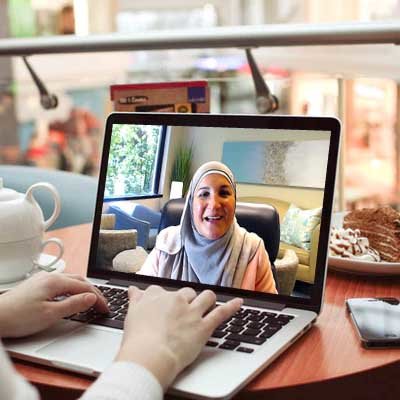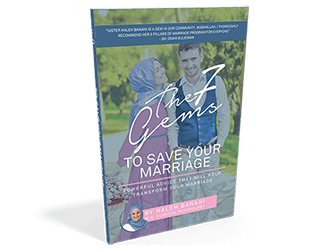Abuse is so prevalent in our communities and throughout the world. It can get very hard to differentiate and understand where to draw the line when it comes to dealing with an abusive partner. Sometimes, you are asked to exercise patience and restrain. At other times, the abuse in relationships can be very manipulative and promise to mend their ways, but will quickly return to their former self, leaving the person in a toxic cycle of torture, abuse, and confusion.
In this article, you will learn about the seven signs to understand what an abusive relationship actually looks like.
Most of the people that I have worked with, and I’ve had the privilege of working with thousands of people over the past 24 years internationally, have seen mental abuse in some form. It is so common. Whether it is seeing your parents in an abusive relationship, your family members, your siblings or you’re in it yourself, domestic violence has become so prevalent in our communities.
Signs of an abusive relationship:
- Extremely possessive: The first sign that you are in an abusive relationship is that the person is extremely possessive. They’re possessive and controlling. They want to know where you are, who you’re with, what you’re doing, etc. They try to limit your interaction with others, and hold a strong control over every single action of yours, whether it is to see what you’re spending on, who you’re spending time with, etc. This level of control is very common with abusive husbands. They want to control where you’re going, what you’re doing and who you’re spending time with.
- Jealousy: The second sign of mental abuse is that the person is very jealous. They’re so jealous that they are always accusing you of either flirting or cheating, and doubt every single move you amle. They could really restrict your interactions. This jealousy is not just for the opposite gender. They may be very jealous of any relationship that you have, any close, meaningful relationships that you have with anyone in your circle.
- Put you down: The third characteristic is that they will put you down. This could be done publicly or privately, in front of family, friends or even strangers. They will constantly shower with criticism that makes you doubt your self worth, having a huge impact on your self esteem. They will criticise your abilities, your intelligence, your looks, your capabilities or whatever it is that you’re doing. There’s a constant putting down, and this is a way of making you have low self-esteem, because when you have low self-esteem, you eventually end up believing them and think that no one would be interested in you. They use this tactic to manipulate your thought princess, making you think that only they can put up with you. This is a way to lock the victim in the relationship to make them feel that they are worthless. The affected person starts to think that they have nothing to offer and that no one else would be interested in them. They end up developing a sense of no self-worth, and that’s why they feel like they deserve to be in an abused relationship. They think they should be abused because they’re such bad people.
- Threats: The fourth characteristic is constant threats. Threats like: “I’m leaving you.” “I’m going to be violent with you.” “I’m going to tell people about __ .”(whatever it is that is constantly making you feel fearful) This is a tactic that is used to also keep a person in place so that they’re not responding back, and don’t run away. They are made to feel fearful all the time.
- Physical violence: The fifth sign is that there’s actual physical violence. This is quite common. We need to realize that domestic violence is not limited to a certain culture. It’s not limited to a certain socio-economic background. It’s not limited to certain places. It affects everyone. It affects the rich and the poor the same way. It affects the educated and the uneducated. I have come across surgeons who have this habit of domestic violence. I have people who are extremely knowledgeable within the deen who indulge in domestic violence. So you find that these threats, that physical, the physical violence is when people usually start taking action, right? When they start getting physically hurt and other people start becoming aware of it.
- Bad Temper: The sixth characteristic is someone who has a bad temper and is constantly yelling. They may be cursing or breaking things, items that you love, just to hurt you and make you angry.
- Unpredictable behavior: The seventh characteristic is a person who has very unpredictable behavior. People are always walking on eggshells. It could be the spouse or the children. They never know what is going to trigger the person. So it’s like walking, in a minefield. It instills a lot of fear.
So if you find that you are in a relationship like that, or, you know, someone who is in a relationship like that, it’s very critical to open up your eyes and evaluate the danger, evaluate what you are experiencing and realize first and foremost, that it’s not your fault. Many of the clients that I’ve had blame themselves because they have been stripped of their self-esteem and have been constantly criticized. It’s very easy to feel that they are to blame for this.
Action Points:
And so, I want you to first know that you deserve to be respected, loved, and have peace in your home. You deserve to live without fear. You, therefore, need to evaluate what you need to do. If you need to get professional help, go get it. Get the support of friends or family if needed. Assess what is the danger of this.
Sometimes, it could be that the person just has a bad temper. They’re a little bit moody and they don’t have the other characteristics. And you feel like you can deal with the moodiness. Right? And other times, you find that every single sign of relationship abuse is there and you’re not doing anything about it.
No place for abuse in Islam:
I want to remind everyone that being patient does not mean taking a beating. I know that there’s a misconception within our communities. And it is very sad for me to say this, but many of the sisters I have worked with think that being a good Muslimah, being a good wife means staying quiet and not speaking up when they face physical abuse. And that is not the case. You’re not expected to stay in an abusive relationship.
You can talk to the person, maybe take some measures and realize, set some strong boundaries. But tolerating physical violence is not going to make things better for you. This will destroy your self-esteem and your spirituality. It’s going to destroy everything about you.
There is a way of resolving conflict. I’m not telling you to necessarily leave either. It is about recognizing, assessing the seriousness of the situation. Many times, I have found that people may fall into these abusive relationships and they don’t even realize that maybe it’s because of their upbringing. So, when they are guided correctly, they’re able to correct themselves. Right? I’m not telling you to end it. I’m not necessarily telling you to stay in an abusive relationship either.
You have to assess. And if you have a hard time assessing, make sure you talk to a professional, seek that guidance, get that support, and realize that being a good Muslimah means respecting yourself. It means living in peace and making sure that you and your children are safe.
I have seen many cases of domestic violence when the man is the victim as well. We usually tend to think of it as only something that women go through, but men have been subjected to domestic violence as well, and it can get quite serious sometimes. Knives are pulled out.
You need to really assess the seriousness of it and recognize that there can be steps to either making the relationship better, stopping the abuse, or recognizing that this is dangerous for yourself and for your kids and having to end it.
And I pray that all of you who are going through this, come out stronger inshaAllah. I just want to let you know, you’re not alone. If you’re going through this, you don’t have to continue suffering like this. Please either make the situation better, make it a safe place, make your home a place of peace and tranquility or recognize that it is dangerous and find a way to get yourself out of this.
I would love to help you in getting yourself out of the situation or making your relationship better InshaAllah. I have some free resources. You can download the free PDF from the link below.
FREE For Sure!
Also, I have many free videos and courses related to Saving Your Marriage on my site, halehbanani.com, so be sure to pay a visit if needed.
Take good care.
Jazakallah Khairan. As-Salaam-Alaikum



How do l wear my hijab like that sister
سيدتي.الكريمه.دعيني.اردعلي.اطروحاتك.وكلامك.لاتتكي.الينا.المجال.وشكرا
263romford.road.london.e7.9hj
I faced all of what you said
Me I’m out of it after narcissist abuse for 60 years enough is enough
Finally!!
FINALLY!Someone who explains like this.
I love this!!!
Just came across your page Haleh Banani. I’d love to connect and invite you to my health talk show . This is fire!!!!
You are beautiful
I have actually adopted his ways over the years his always been accusing me over the years had an xtrmly bad temper Nd became physical most of the tyms I felt humiliated over the years even during my pregnancies so it saddens. Me today as I feel i have developed all the ways he treated me I dnt tink I know Wu I am anymore as he always plays reverse phycology I hate the person I become I pray Allah gives me tufiq. My kids needs to grow up in a healthy happy environment.
Jazzakallah khaiyer
These are all overt signs. The covert signs are what people are not aware of
Thanks for sharing, thanks for talking about this topic.yes you are absolutely correct so many people are in this situation.
I had a great husband who did everything for me
Kay Boomgaard may ALLAH swt grant him a high place in Jannah, In Shaa Allah Ameen
We are Muslims and I can’t understand why he’s acting like this, my husband passed away in May 2020
I’m being mentally abused by my eldest son
Shamiela Abass
Ebrahim Seedat
But I’ve heard once an abuser is always an abuser. Is it so
What about a a spouse with narcissist traits who can be emotionally, psychologically and physically abusive on one hand and act normally on the other?
Asalamu alaikum
Masallah sister thanks
Are You In an Abusive Relationship || Marriage Mending Monday with Haleh Banani
<>
https://halehbanani.com/7gems